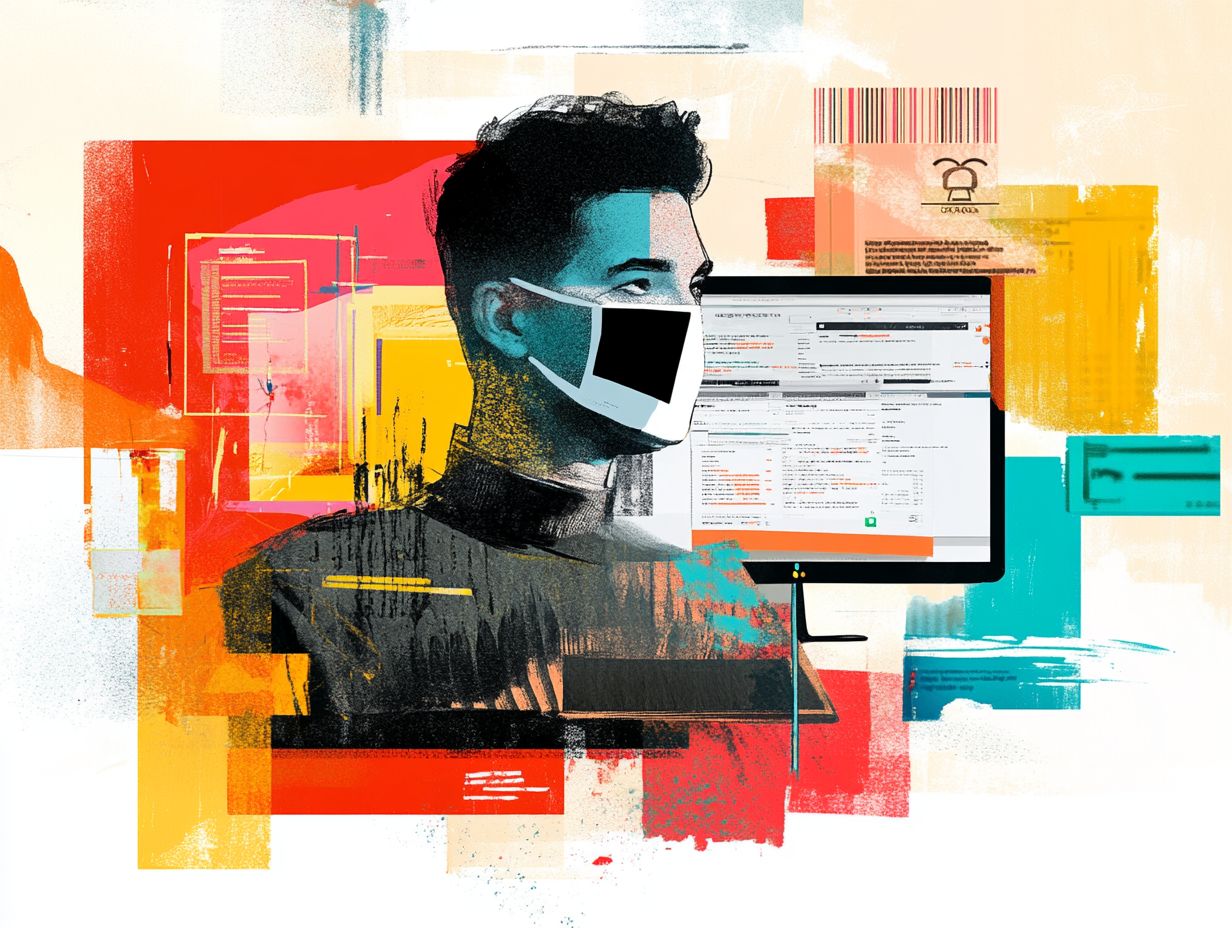The Different Types of Fraud
Fraud manifests in numerous ways, affecting both individuals and organizations.
From identity theft to cyber scams, understanding the various types of fraud is essential for protecting your financial and personal information. This article explores prevalent forms of fraud, including financial, insurance, healthcare, and charity fraud.
It offers practical tips to safeguard yourself and outlines effective responses should you become a victim. Arm yourself with this knowledge to navigate an increasingly deceptive world with confidence.
Contents
Key Takeaways:

Fraud can take various forms, including identity theft, financial fraud, and insurance fraud. These can have a significant impact on individuals and businesses.
Protecting yourself from fraud requires awareness and proactive measures, such as monitoring financial accounts and personal information, and practicing caution online.
In the event of fraud, quick action is crucial. Contact the appropriate authorities and financial institutions. Regularly reviewing credit reports can help mitigate the damage.
Defining Fraud and its Impact
Fraud, which includes identity theft and various financial scams, has become a widespread concern. It profoundly affects both individuals and financial institutions.
With cybercrime on the rise and unauthorized access to sensitive information becoming alarmingly common, organizations are emphasizing robust security measures to guard against fraudulent activities.
The repercussions of these scams can lead to significant financial losses, reputational damage, and a deterioration of consumer trust. Understanding the implications of fraud is crucial for developing effective strategies for detection and mitigation.
Types of Fraud
Fraud takes many forms, such as identity theft, financial fraud, insurance fraud, and online scams. For a deeper understanding, check out the types of fraud: 4 common examples, as each presents distinct threats to individuals and organizations.
Understanding these types of fraud is essential for crafting effective prevention strategies. Whether it s healthcare fraud or employee misconduct, these fraudulent activities can lead to considerable financial losses and reputational harm.
It s vital for everyone to stay alert and proactive!
Identity Theft
Identity theft occurs when someone steals your personal information, like your Social Security number, to commit fraud. This often happens through phishing attacks and data breaches, leading to significant financial losses and emotional distress.
Fraudsters use cleverly designed phishing schemes, pretending to be trustworthy figures like banks or government organizations to lure unsuspecting individuals into revealing sensitive information. Data breaches can expose large amounts of your personal data, making it easy for criminals to assemble identities for their schemes.
Implementing strong customer authentication methods is essential, as it reduces the risk of unauthorized access to your information. By adopting strong cybersecurity measures, such as a security method that requires two forms of identification and encryption, you can empower yourself to protect your data against potential threats.
This proactive approach fosters a more secure digital environment, allowing you to navigate the online world with confidence.
Financial Fraud

Financial fraud includes various illicit activities, such as credit card fraud and unauthorized transactions. These actions can have dire consequences for you and financial institutions.
As payment fraud becomes increasingly sophisticated, having robust transaction monitoring systems in place is essential for swiftly detecting and addressing these threats.
These illicit activities manifest in various forms, including identity theft, phishing schemes, and online scams. Each leaves you with emotional distress and financial loss.
Fraudsters often employ advanced techniques like social engineering and malware to exploit vulnerabilities. This makes it imperative for organizations to stay one step ahead.
By implementing a method that requires multiple forms of verification to access accounts, you can add an extra layer of protection. This ensures that only authorized users gain access to sensitive information.
Consumer education plays a crucial role in enhancing awareness about these schemes, empowering you to recognize the signs of fraud and take preventative measures.
Together, these strategies provide a strong defense against the rise of payment fraud.
Insurance Fraud
Insurance fraud entails submitting deceptive claims to financial institutions. This results in significant losses and elevated premiums for consumers like you.
This type of fraud can be especially difficult for companies to detect. It takes on various forms, including healthcare fraud.
You may encounter other common varieties, such as:
- Auto insurance scams, where individuals stage accidents or embellish damages.
- Property insurance fraud, where policyholders inflate claims or even fabricate thefts.
The repercussions of these actions extend throughout the financial sector. They lead to stricter regulations and increased scrutiny, impacting both fraudsters and honest consumers.
Being vigilant is essential. Financial institutions must adopt robust security measures to protect against these deceptive practices.
Elevated awareness and advanced fraud detection technologies are critical in reducing the risks associated with consumer fraud. This creates a more secure environment for legitimate customers like you.
Online and Cyber Fraud
Online and cyber fraud has experienced a notable surge with the advancement of technology. Fraudsters use smart tricks like fake emails and videos to steal your information.
Fraudsters utilize sophisticated techniques, including social engineering and deep fake technology, to gain unauthorized access to sensitive information. Technology is always changing, enabling these criminals to refine their strategies and prey on vulnerabilities.
One common tactic involves crafting fake websites that closely mimic legitimate services. This tricks users into entering their personal data.
The rise of mobile payment platforms has opened new avenues for fraudsters to exploit security gaps. You must adopt strong, multi-factor authentication now to protect yourself!
Educating yourself about red flags and safe online practices can significantly reduce the likelihood of falling victim to these cyber crimes.
Healthcare Fraud
Healthcare fraud is a serious issue that involves submitting false claims to secure unauthorized benefits. This ultimately leads to significant financial losses and compromises the quality of care you receive.
This encompasses a range of deceptive practices, such as billing for services that were never rendered or inflating the costs of legitimate services.
Kickbacks for referrals and falsified patient diagnoses further complicate this landscape. These actions not only siphon resources away from genuine healthcare services but also drive up premiums for consumers.
For financial institutions, these fraudulent schemes lead to exorbitant costs linked to claim investigations and reimbursements. Implementing effective transaction monitoring and robust reporting mechanisms is crucial.
This allows for the early detection of suspicious activities, enabling prompt action to mitigate the far-reaching repercussions of healthcare fraud. Stay alert and report any suspicious activities to safeguard your interests!
Charity Fraud

Charity fraud happens when individuals or organizations misrepresent themselves to solicit donations under false pretenses. This leads to significant consumer fraud and damages the reputation of legitimate charitable organizations.
This form of deceit takes advantage of the goodwill of donors and often employs clever social engineering techniques. Fraudsters frequently tap into emotional triggers, weaving compelling narratives that tug at the heartstrings and create an urgent call to action.
By crafting stories that resonate deeply with potential donors, they build trust and lower the barriers for contributions. To protect yourself against such scams, it s essential to verify charities before donating.
Check credible resources like the Better Business Bureau’s Wise Giving Alliance or Charity Navigator. Educating yourself about red flags such as high-pressure tactics or vague explanations about fund allocation can empower you to distinguish legitimate efforts from deceptive schemes.
By fostering a more secure donation environment, you can ensure your contributions truly make a difference.
Employee Fraud
Employee fraud encompasses dishonest actions taken by employees against their employers. This often leads to significant financial losses and unauthorized access to sensitive information.
Such fraud can severely compromise the integrity of an organization. It is imperative for your organization to establish robust security measures and effective fraud detection protocols.
The forms of employee fraud you may encounter include:
- Embezzlement, where funds are taken for personal gain.
- Unauthorized access to confidential data, leaving your company vulnerable to identity theft and data breaches.
- Kickbacks and manipulation of financial statements, which are prevalent tactics used to deceive employers.
To tackle these risks effectively, it s crucial for your organization to implement strong internal controls and maintain continuous monitoring systems.
By cultivating an environment of transparency and accountability, you can significantly reduce the likelihood of fraudulent activities and preserve the trust vital for a healthy workplace.
How to Protect Yourself from Fraud
To safeguard yourself from fraud, adopt proactive measures that include educating your customers on cybersecurity best practices and implementing strong security protocols.
By understanding the tactics used by fraudsters, you can significantly diminish the likelihood of becoming a victim of fraudulent activities.
Tips for Prevention and Response
Implementing effective prevention tips and response strategies is crucial for minimizing the risk of fraud, especially in today s landscape filled with phishing attacks and unauthorized transactions.
Your awareness and proactive measures can empower you to protect your sensitive information.
One of the most vital steps you can take is to stay vigilant in recognizing phishing schemes, which often disguise themselves as legitimate communications. Educating yourself on the telltale signs like unusual email addresses and urgent calls to action will help you avoid falling victim to these traps.
Setting up alerts for unauthorized transactions can provide real-time notifications, enabling you to act immediately. It s equally important to report any suspicious activity to your financial institutions right away; prompt reporting can significantly enhance their ability to respond to fraudulent practices and may help you recover lost funds.
By integrating these strategies into your daily routine, you can effectively mitigate risks and safeguard your financial well-being.
Frequently Asked Questions

What are the different types of fraud?
There are several types of fraud, including identity theft, credit card fraud, insurance fraud, investment fraud, and tax fraud, which are all covered in detail in this article on the 5 major types of fraud.
What is identity theft?
Identity theft is a type of fraud where someone steals your personal information, such as your name, social security number, or credit card number, and uses it to commit crimes or make purchases.
How does credit card fraud occur?
Credit card fraud occurs when someone illegally uses your credit or debit card to make unauthorized purchases or withdraw cash from your account.
Stay informed and take action to protect yourself against fraud today!
What is insurance fraud?
Insurance fraud occurs when someone deceives an insurance company to receive unearned money or benefits.
What is investment fraud?
Investment fraud involves providing false or withheld information to manipulate stock prices and gain profits. This is often referred to as securities fraud.
What is tax fraud?
Tax fraud happens when someone misrepresents their income or deductions to lower their tax bill unfairly. It s a serious crime that can lead to severe penalties.
Don t let fraudsters take advantage of you!




